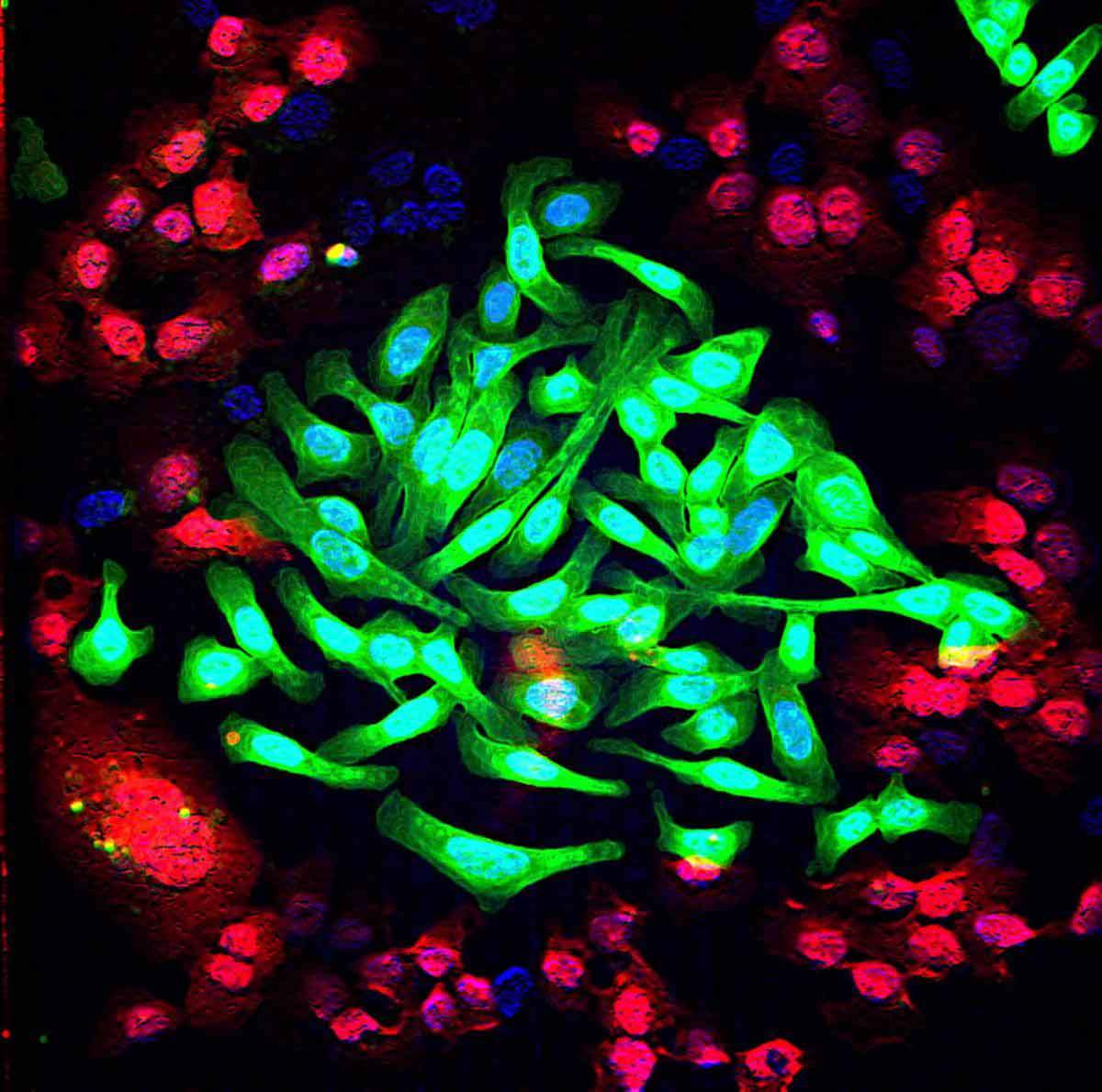How do the cancer cells manage to circumvent the blockade put up by an anti-EGFR antibody? In the new study, which appeared today in Science Signaling, Yarden and his student Maicol Mancini discovered what happens to cancer cells when they are exposed to the receptor-blocking antibody.
“The blocked receptor has ‘siblings’ – other receptors that can step up to do the job,” says Yarden. Indeed, the team found that when the main receptor (EGFR) continued to be blocked, one of the cell’s communication networks was rerouted, causing the siblings to appear on the cell membrane instead of the original receptor. The finely-tuned antibody did not block these, and thus the cancer cells were once again “in business.” The researchers uncovered the chain of protein communication in the new network that ultimately leads to appearance of the sibling growth receptors. This new network may overcompensate for the lack of the original receptor, making it even worse than the original. In addition, the team found that the rewired network sometimes included the participation of another molecule, known as receptor tyrosine kinase MET, which specifically binds to one of the siblings. This signaling molecule is often found in metastatic cancers.
Once the researchers discovered how the blockade was breached, they set out to erect a better line of defense. Yarden and his team created new monoclonal antibodies that could target the two main growth receptor siblings, named HER2 (the target of the breast cancer drug Herceptin) and HER3. The idea was to give all three antibodies together – the two new ones and the original anti-EGFR antibody – to preempt resistance to the treatment. Indeed, in isolated cancer cells, applying the triple treatment prevented them from completing the rewiring necessary for continuing to receive growth signals.
Next the team tried the three-pronged approach on mouse models of lung cancer that had the secondary, resistance mutation. In these mice, the tumor growth was almost completely arrested. More importantly, further research showed that this treatment reined in the growth of the tumor while leaving healthy cells alone.
Although much more research is required before the triple-treatment approach makes it to the clinic, Yarden is hopeful that it will change not only the treatment protocol for lung cancer, but our understanding of the mechanisms of drug resistance. “Treatment by blocking a single target can cause a feedback loop that ultimately leads to a resurgence of the cancer,” he says. “If we can predict how the cancer cell will react when we block the growth signals it needs to continue proliferating, we can take preemptive steps to prevent this from happening.”
Also participating in this research were Drs. Nadège Gaborit, Moshit Lindzen, Tomer Meir Salame of the Biological Services Department, and Ali Abdul-Hai, also of Kaplan Medical Center; and research students Massimiliano Dall’Ora and Michal Sevilla-Sharon; together with Prof. Julian Downward of the London Research Institute, UK.
Prof. Yarden is the recipient of the 2015 Leopold Griffuel Prize for Fundamental Research, awarded by the major French association for fighting cancer, called ARC Foundation for Cancer Research.
Prof. Yosef Yarden’s research is supported by the Dr. Miriam and Sheldon G. Adelson Medical Research Foundation; the Maurice and Vivienne Wohl Biology Endowment; the Louis and Fannie Tolz Collaborative Research Project; the European Research Council; and the Marvin Tanner Laboratory for Research on Cancer. Prof. Yarden is the incumbent of the Harold and Zelda Goldenberg Professorial Chair in Molecular Cell Biology.
